There are many system files in a Windows computer that run in the background. These files start when you turn ON your computer. The work of these files is to manage different processes in the Windows operating system. But some malware or viruses mimic the computer’s system files. In such a condition, it becomes difficult for a user to differentiate between malware and the original system file. In this article, we will discuss what a Sihost.exe file in Windows 11/10 is and how you can differentiate it from a virus.
What is Sihost.exe in Windows 11/10?
Sihost.exe stands for Shell Infrastructure Host file. It is an executable system file that runs in the background and is one of the crucial files for Windows 11/10. Sihost.exe carries out various processes in Windows 11/10, including starting and launching the context menu, action center, etc.
You can view this file in the Task Manager. To open the Task Manager, right-click on the taskbar and select “Task Manager.” Now, in the “Processes” tab, scroll down to view the “Shell Infrastructure Host” file. It is the Sihost.exe file.
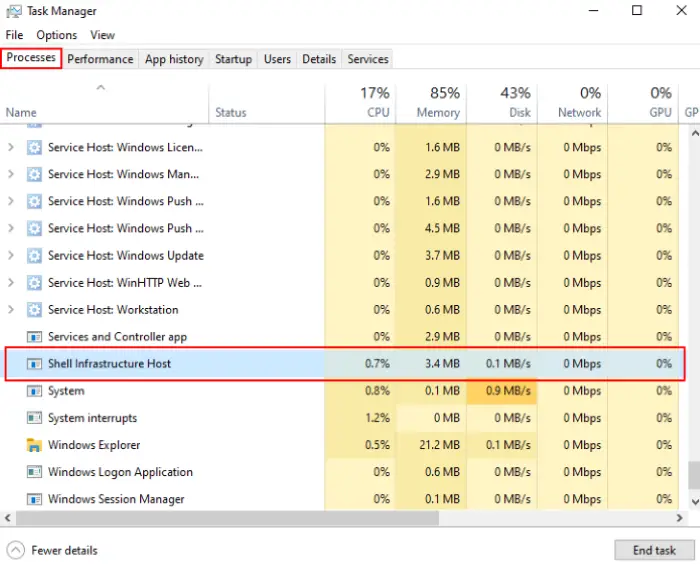
Can you Disable or Terminate the Sihost.exe Process?
You can terminate the Sihost.exe process by clicking the “End Task” button in the task manager. This will terminate the Sihost.exe process. But beware of doing such attempts, as it may cause a critical error on your system because Sihost is a system file. Maybe after disabling it, you cannot launch the Start menu and Cortana, as they are controlled and managed by the Sihost.exe process. Moreover, you may also encounter the crashing of file explorer frequently. Deleting it permanently will cause the Windows Shell to break completely.
What happens if Sihost.exe gets corrupted?
A defective Sihost.exe or Shell Infrastructure Host can cause your system to run slow and displays different kinds of error messages, such as:
- Shell Infrastructure Host has stopped working.
- A problem has occurred that caused the program to terminate.
- Access violation of the address FFFFFFFF in Shell Infrastructure Host (Sihost.exe) module and reading the address 00000000 (an Unknown hard error).
In such a case, you should run the System File Checker.
Sihost.exe is not a threat to your computer system unless it is a malicious file. So, how can you check if the file is suspicious? Read further to know the process.
How to fix Sihost.exe Unknown hard error?
To fix Sihost.exe Unknown hard error you can try these steps:
- Run System File Checker (SFC)
- Run Deployment Imaging Service and Management Tool (DISM).
- Perform a Clean Boot to troubleshoot.
- Check for hard drive errors using chkdsk.
- Use System Restore to revert to a previous state.
- Update or reinstall problematic programs.
How to check if Sihost.exe is a virus?
Many malware and viruses can camouflage themselves to the system files. By doing this, they remain active in the system without letting the user know about them. Such malware and viruses are a threat to your computer system and you should take appropriate action to remove them. To check whether the Sihost.exe is malicious or not, follow the below-listed steps:
1] Open the “Task Manager” and select the “Shell Infrastructure Host.” Right-click on it and select “Properties.”
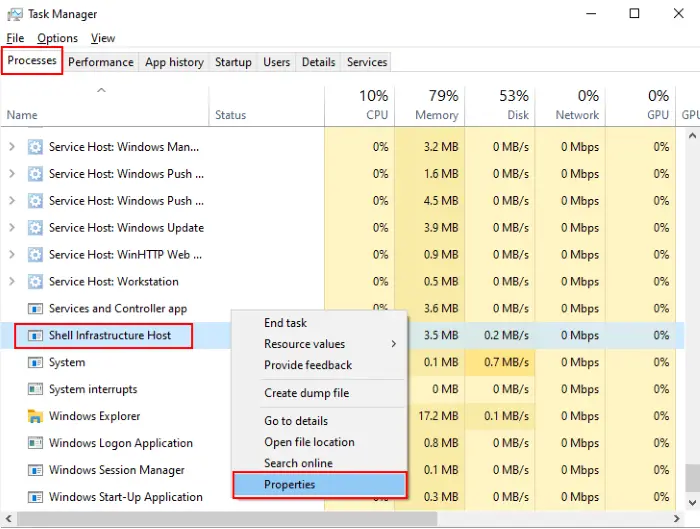
2] Now, click on the “Details” tab and read the description of the file. If it is a genuine file, it has copyright from the Microsoft Corporation.
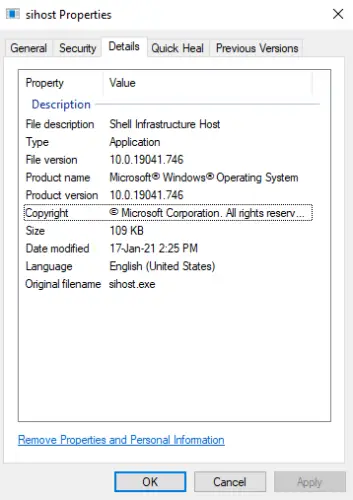
Alternatively, you can also check whether Sihost.exe is a malicious file or not by checking its location in the directory. For this, follow the below-listed steps:
1] Open the Task Manager, right-click on the “Shell Infrastructure Host” and select the “Open File Location” option.
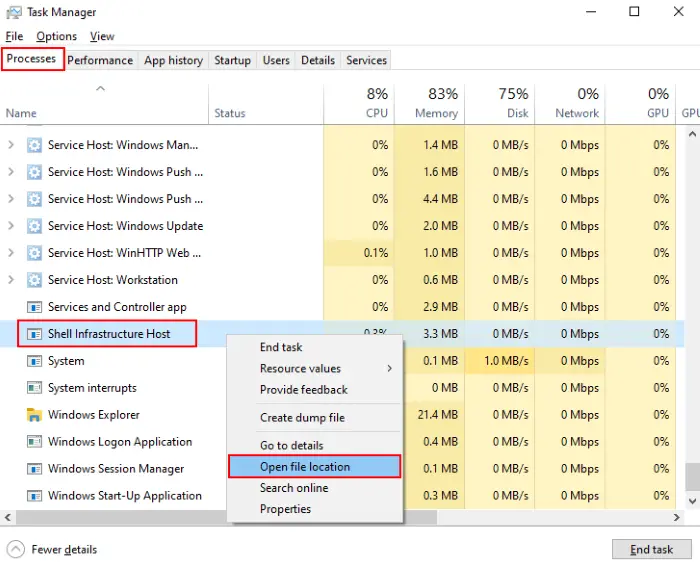
TIP: This post will help you if you face Shell Infrastructure Host high CPU and Memory usage issues.
2] Now, check the directory in which the file is located. If it is located in the directory C:\Windows\System32, you need not worry about it.
But if the directory is other than what we have mentioned here, it may be a virus or malware.
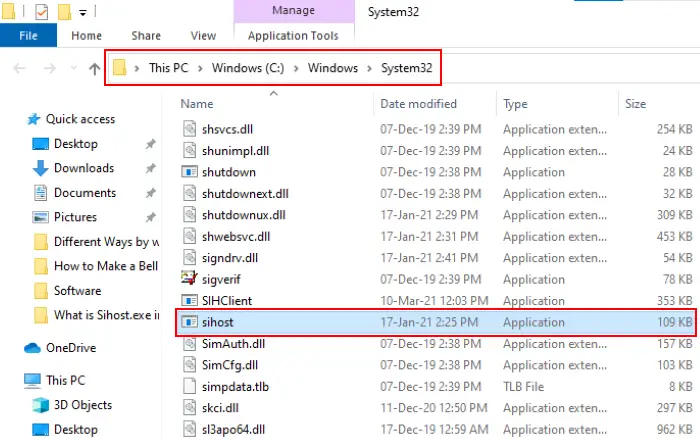
What to do, if it is a virus or malware? Consider scanning your PC with a good antivirus and antimalware software.
If you want to stay protected from such malicious files, you have to take care of the following points:
- Update your Windows 10 to the latest version. The newest updates fix the possible vulnerabilities in Windows 10 that make it an easy target of cybercriminals.
- Always use an effective antivirus and never disable the firewall protection. Also, keep your antivirus up to date.
- Never open a link from an untrusted source.
- Never save your passwords and sensitive information on web browsers, especially your credit card and banking details.
- Always purchase the original version of Windows. Do not install the pirated versions.
Sihost.exe is a crucial Windows file but can put you into trouble if a virus or malware is camouflaging in your system. Browsing the internet safely and downloading free software only from the trusted websites are some of the good practices to minimize the risk of getting your system infected.
Fix: Sihost.exe error, The system detected an overrun of a stack-based buffer in this application.
Leave a Reply